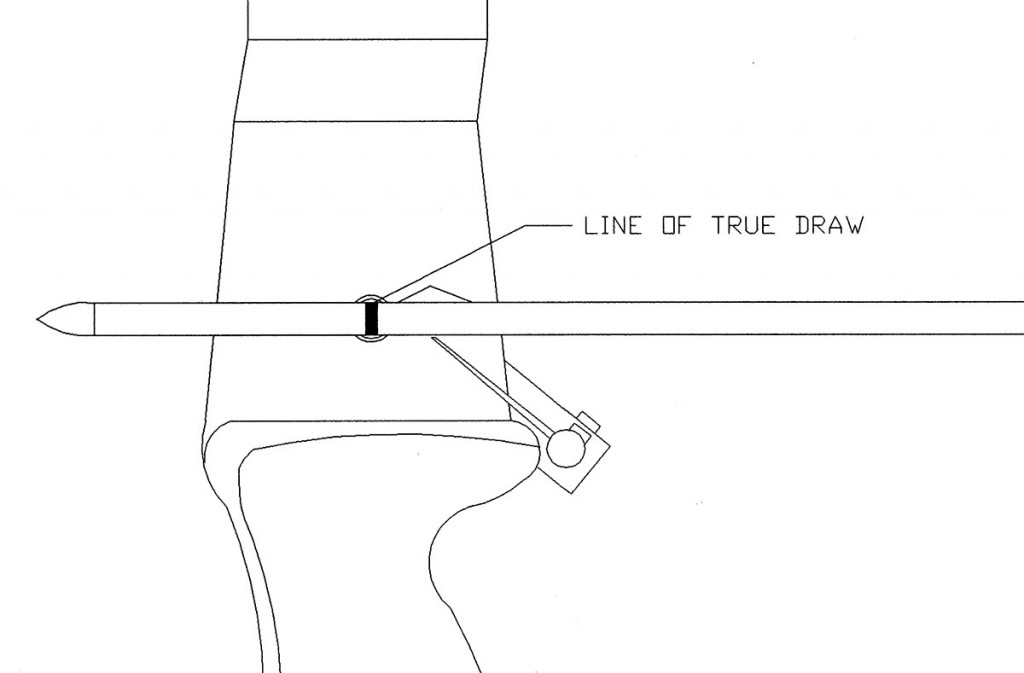The most important decision, by far, when buying a bow is getting the right draw length. Without the proper knowledge and some expert advice, the novice – and even some experienced archers – have made disastrous mistakes. Knowing your true draw length is as important to your shooting success as knowing your shoe size is to your walking comfort. When the shoe doesn’t fit, you feel miserable until you change it. Same with an improperly fitted bow.
The most accurate method of measuring true draw length is to draw the bow of a friend whos is about the same arm length as you. You must consider whether or not you plan to shoot the same style as your friend, i.e., with a release aid or fingers only. Release aids generally act as an extension of your fingers and cause the string to be drawn a shorter distance than when drawn using a finger tab. This difference can be as much as two inches.
With this in mind, draw the bow in the style you plan to use and try to get comfortable with an anchor. This may take some experimenting if you are a beginning archer. A local dealer or an experienced archery can help at this time.
After you have drawn the bow several times and feel somewhat comfortable, draw again with an arrow in the bow. When you reach the anchor that seems comfortable, have someone mark the arrow adjacent to the rest mounting hole in the handle riser. This mark should be directly above the grip where your hand touches the deepest part of the handle. The distance from this mark to the recess in the nock is your true draw length. It is a measurement of your body size for the purpose of drawing a compound bow.
BEWARE! Most bow manufacturers do not advertise or take orders using true draw measurements. Instead, they use a traditional draw length which is slightly longer than true draw. The difference is the distance from the plunger hole to the back of the handle riser. This adds about 1-3/4 inches to the true draw measurement. This gives us the following relationship: Traditional Draw = True Draw + 1-3/4 inches.
Please keep in mind that your arrow length must be longer than your true draw length so the arrow point extends beyond your arrow rest. How much longer depends upon you and your purpose. If you intend to shoot broadheads, then your arrow length must be longer than your traditional draw length with this bow so the broadhead is not drawn into the handle riser or your fingers. The tournament arrow must extend only past the arrow rest at full draw.
- This how-to tip is excerpted from th Pre-Use Bow Preparation chapter of TUNING YOUR COMPOUND BOW, a 132-page how-to book by Larry Wise, international champion target and field archer and international coach.





